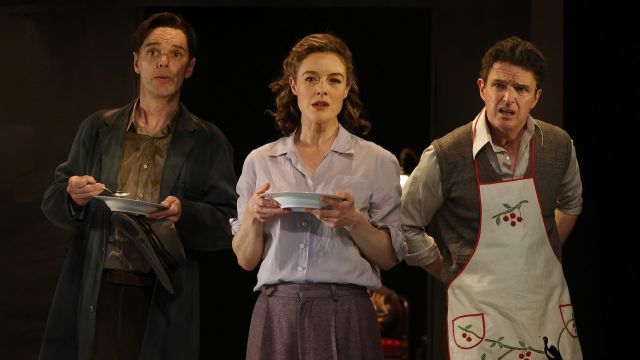Sunday
The story of John and Sunday Reed and their bohemian arts haven outside Melbourne is already running to legend.
Heide was an open house from the 1930s where a new generation of modernist artists like Sidney Nolan, Joy Hester, Arthur Boyd and John Perceval bunked down communally and found their creative feet – thanks to the Reeds’ hospitable philanthropy but also to Sunday’s motivating drive and critical eye. Under her husband’s approving gaze, she even made Nolan her lover.
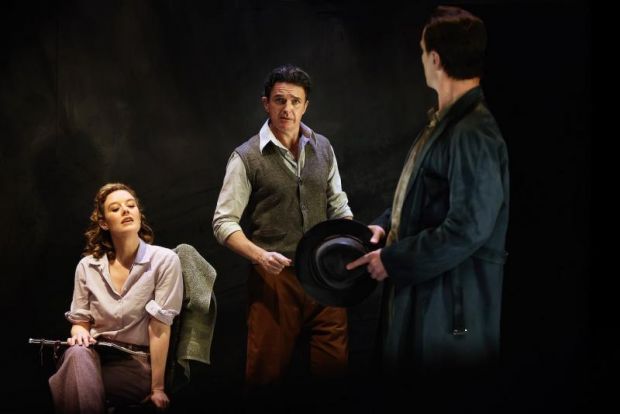
The story of this intriguing threesome is now an engrossing, part fictional play, Sunday, by Anthony Weigh, filling in the shadows of what we don’t know and – except for Joy Hester – only mentioning the other artists in passing. Premiered this year by the Melbourne Theatre Company, it is here presented by the STC.
Gilding the legend was the wealthy status of the Reeds (she was a Baillieu, as they’d say in old Melbourne), and Weigh creates deliciously flirtatious banter from their first meeting over drinks and tennis, and a mutual desire to find a better, liberated life.
Nikki Shiels is radiant as Sunday, shimmering through joyful or crude, opinionated and intolerant, heartfelt and finally anguished. She’s a Hedda Gabler, scornful of social conformity and investing her creativity in seeding her artists; when spurned she attacks with ferocity, finally crumpling into Tennessee Williams’ coquettish Blanche (a role Shiels played only last year).
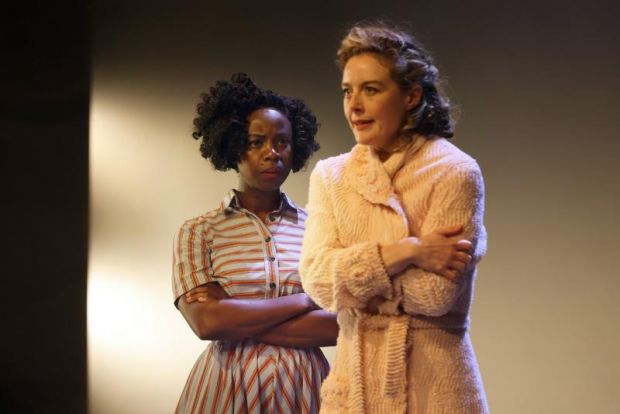
Shiels prowls, skips, even dances around the dark paint-smeared walls of Anna Cordingley’s box set, with the shifting dates and places over three decades projected overhead. Matt Day is an amiable and witty John Reed, Day’s usual reasonableness and authenticity well-matched to the mercurial Sunday. James O’Connell convinces as Nolan, the poor artist from the other side of the tracks, whose bumptious egocentricity almost threatens his capacity to learn – and love.
Nolan and Sunday ultimately part in an explosively staged breakdown under the autumnal oak tree, at Heidi, finally giving golden impact – here near Chekhovian – to the box set. Sunday is directed with pace and empathy by Sarah Goodes and Harriet Oxley’s period costumes are attractive and exact.
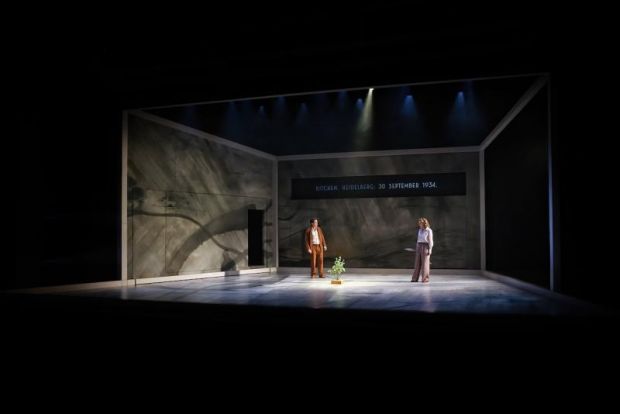
Ratidzo Mambo is Joy Hester, an underwritten role as Sunday’s friend and the only other Heide artist to appear. Joy and her husband artist Albert Tucker pass their new baby for adoption to the infertile Sunday, but the reasons are fudged. It’s odd, when the true story was so gripping, just as the outcomes over the years ahead were so sad.
In the play’s compelling first scene, Heide circa 1959, the older Sunday gazes at paintings with the teenage boy, Sweeney (Philip Lynch expertly on book for this performance), but the actor is wasted when we never see him again. The real Sweeney suicided at 34 in 1979, and John and Sunday Reed both died just two years later.
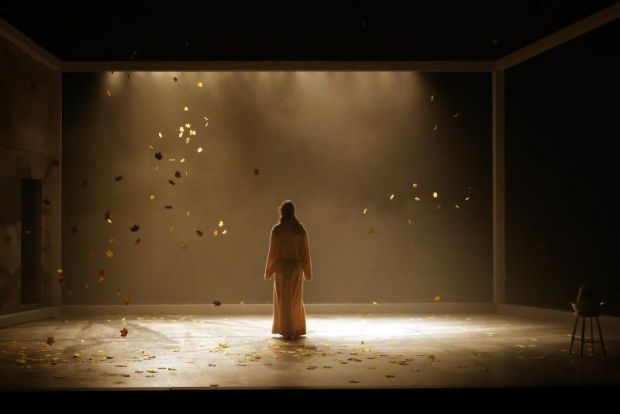
Sunday is an absorbing, stimulating bio-drama of passion and debate, a must-see full of truths, if not all literal truths.
Martin Portus
Photographer: Prudence Upton
Subscribe to our E-Newsletter, buy our latest print edition or find a Performing Arts book at Book Nook.

